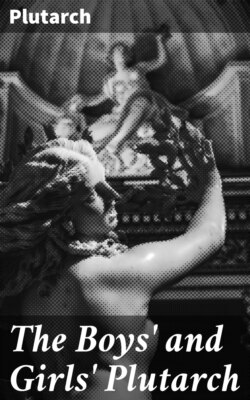Читать книгу The Boys' and Girls' Plutarch - Plutarch - Страница 7
На сайте Литреса книга снята с продажи.
COMPARISON OF THESEUS AND ROMULUS
ОглавлениеTable of Contents
Both Theseus and Romulus were by nature meant for governors; yet neither lived up to the true character of a king, but fell off, and ran, the one into popularity, the other into tyranny, falling both into the same fault out of different passions. For a ruler's first end is to maintain his office, which is done no less by avoiding what is unfit than by observing what is suitable. Whoever is either too remiss or too strict is no more a king or a governor, but either a demagogue or a despot, and so becomes either odious or contemptible to his subjects. Though certainly the one seems to be the fault of easiness and good-nature, the other of pride and severity.
But Romulus has, first of all, one great plea, that his performances proceeded from very small beginnings; for both the brothers, being thought servants and the sons of swineherds, before becoming freemen themselves gave liberty to almost all the Latins, obtaining at once all the most honorable titles, as, destroyers of their country's enemies, preservers of their friends and kindred, princes of the people, founders of cities; not removers, like Theseus, who raised and compiled only one house out of many, demolishing many cities bearing the names of ancient kings and heroes. Romulus, indeed, did the same afterwards, forcing his enemies to deface and ruin their own dwellings, and to sojourn with their conquerors; but at first, not by removal, or increase of an existing city, but by foundation of a new one, he obtained himself lands, a country, a kingdom, wives, children, and relations. And, in so doing, he killed or destroyed nobody, but benefited those that wanted houses and homes, and were willing to be of a society and become citizens. Robbers and malefactors he slew not; but he subdued nations, he overthrew cities, he triumphed over kings and commanders. As to Remus, it is doubtful by whose hand he fell; it is generally imputed to others. His mother he clearly retrieved from death, and placed his grandfather, who was brought under base and dishonorable vassalage, on the ancient throne of Aeneas, to whom he did voluntarily many good offices, but never did him harm even inadvertently. But Theseus, in his forgetfulness and neglect of the command concerning the flag, can scarcely, methinks, by any excuses, or before the most indulgent judges, avoid the imputation of parricide. And, indeed, one of the Attic writers, perceiving it to be very hard to make an excuse for this, feigns that Aegeus, at the approach of the ship, running hastily to the Acropolis to see what news there was, slipped and fell down; as if he had no servants, or none would attend him on his way to the shore.
